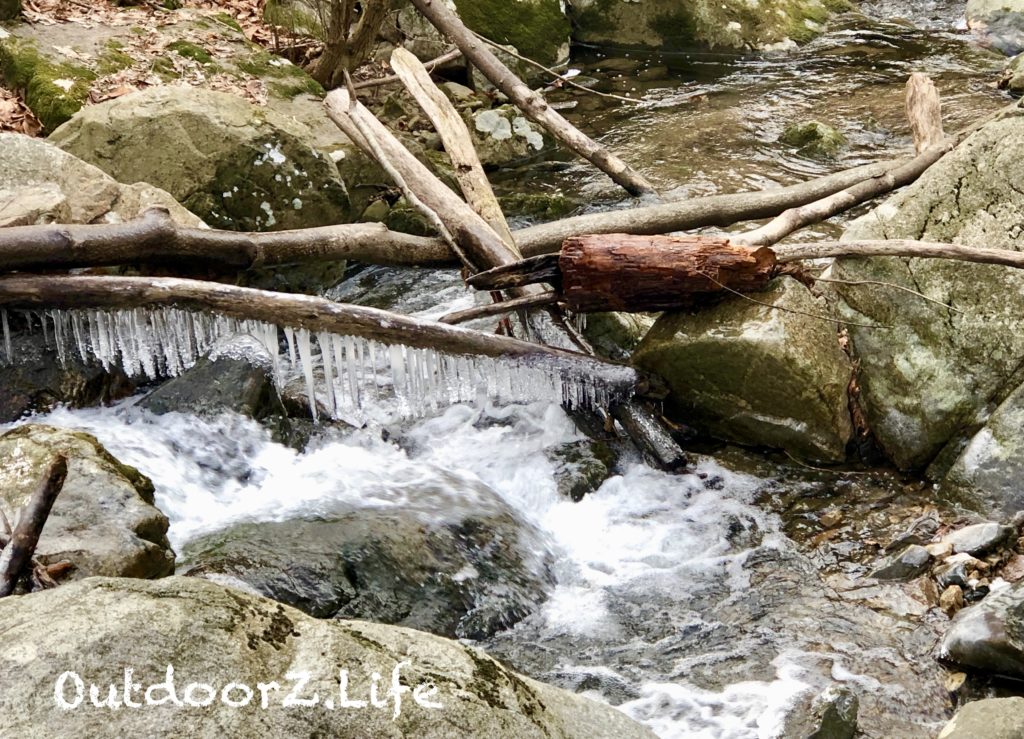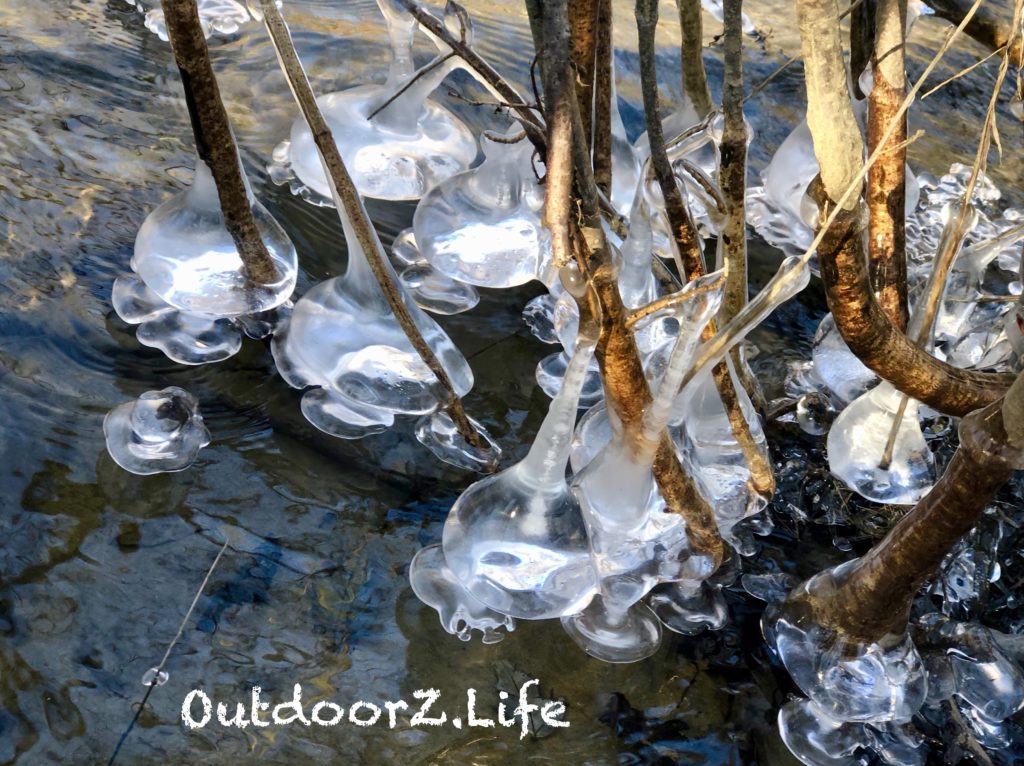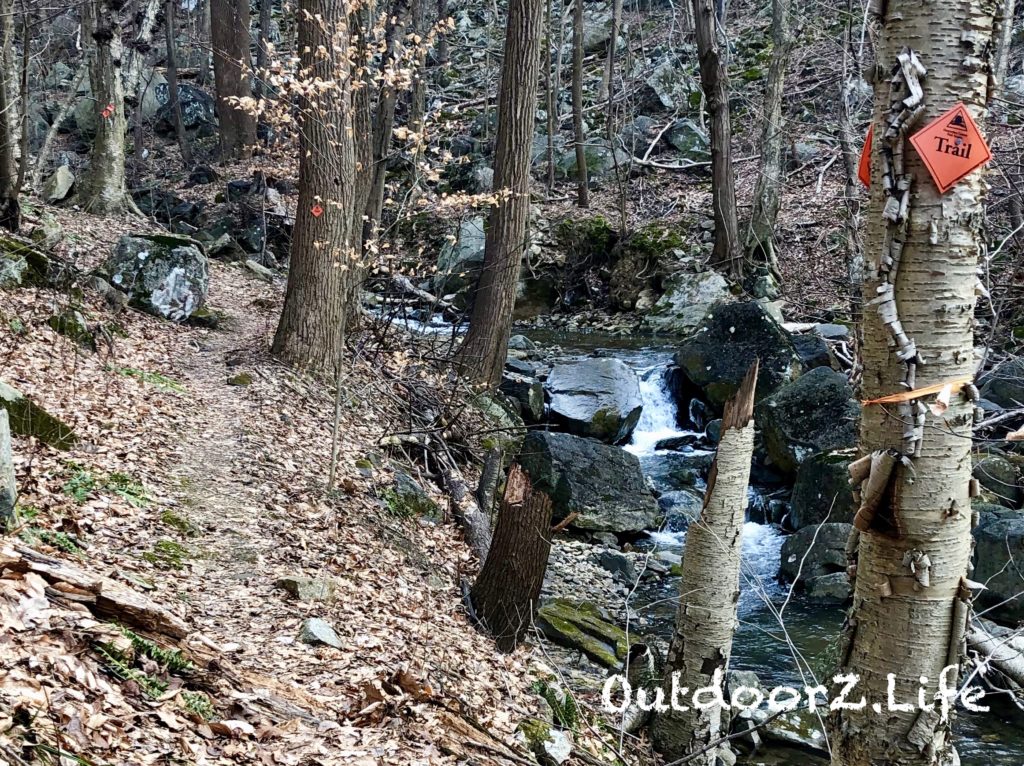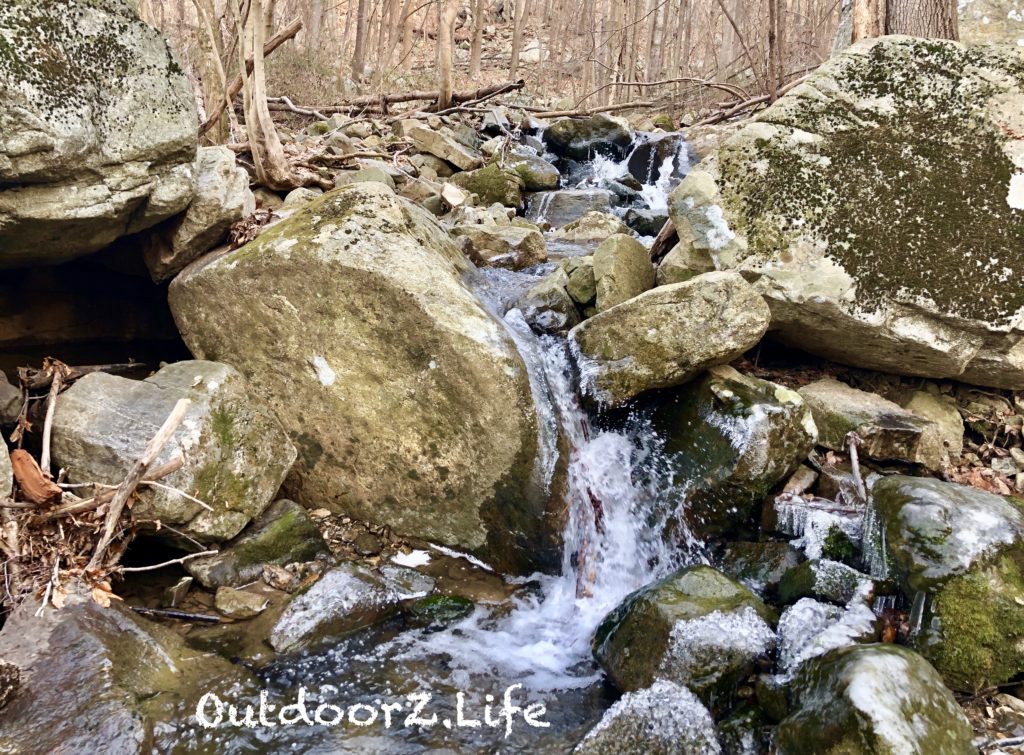There are many advantages to hiking in winter. One of the neatest advantages is being able to observe water in its different states. “Water is the only substance that exists in all three phases as gas, liquid, and solid under normal circumstances on Earth.” (World of Earth Science)
Hiking in the winter, especially if you hike near a lake or stream, offers the chance to view water as a liquid and a solid…which makes for some fantastic viewing.

When temperatures plummeted recently, I hiked near a local river. The Musconetcong River has a swift current, which keeps the main channel from freezing most of the time. However, eddies, pools, and the slow water near the river’s edge can freeze over in unique ways. On my recent hike, I selected a few side trails that took me directly to the river. At the end of one of these trails, I saw that the ice had formed on plants in shapes that surprised me (see picture below).

This past weekend, my wife and I headed out to a local gorge that is a few miles away from where I had seen the unique ice formations. The Musconetcong River Gorge offers secluded trails in the winter. Much of our hiking was along a stream that etched out the gorge over time.

We visited the gorge after a heavy rain, so the stream was flowing nicely. Our timing also meant that stream crossings proved more challenging. One of the rocks I chose to step on during a stream crossing happened to have a little ice on it. I stepped…I slipped…and my left foot went under the frigid water. Well, a little water never ruined a good hike.
A few hiking tips came to mind for cold weather stream crossings:
1. Wear waterproof boots with good traction.
2. Choose high cut boots for added water protection. (I chose low cut boots on our recent hike in the gorge, which provided easy water entry when I slipped off a rock).
3. Use hiking or trekking poles. (I purchased a
4. Plot your crossings carefully. Be sure to see your entire route before proceeding so you are not stuck in the middle of the stream. Also, test the stability of rocks with your trekking poles to ensure solid footing.
5. Bring someone who will go first and test the route. When I slipped off one rock, my wife immediately walked downstream a few yards and chose another path (She stayed dry).
6. Lastly, go for it. So, you get a little wet…that’s worth the memories.

Read more about Charlie Anderson.
See where this story/article ranks in popularity: Top 10 List
Click here to see a short story: “I wonder how far I can kayak?”

Pingback: Embrace Winter! - Insight from the OutdoorZ
Great inspirational article with practical advice for hiking in winter.
Thanks Kristine!
Pingback: Let's build a snowman! - Insight from the OutdoorZ
Great words and pics, Charlie
Thanks Clayton!
Pingback: Snowman Disappearance! - Live Life Outdoors